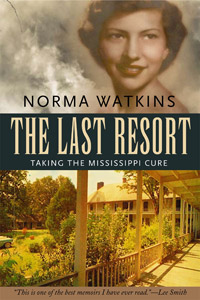Interview with Norma Watkins, 2 of 3
 This is Part 2 of my email interview with Norma Watkins. Part 1 is here. Part 3 will be up tomorrow.
This is Part 2 of my email interview with Norma Watkins. Part 1 is here. Part 3 will be up tomorrow.
Angela: You write about yourself on your wedding day, “I was everything a well-brought-up white southern woman was supposed to be, everything my father and those sixty thousand and counting Citizens’ Council members vowed to protect.” The segregationists were trying to hold on to the way race relations used to be; what do you think is or was the relationship between race relations and gender relations in the South?
Norma: We were told that everything the White Citizens Council did was for us—the fair sex—to protect us from them. As women, we were weaker, and must be kept on our pedestals, safely out of the way of conflict or harm, which also meant we weren’t to have opinions or enter the political fray. It wasn’t ladylike. The civil rights movement and women’s movement were inextricably entwined. You cannot free another if you are not free yourself. In the 50s and 60s, women had no power. We didn’t have jobs or money of our own. We went to college to find a husband. We could be teachers or nurses, but when we had children, if our husbands were doing a proper job of supporting us, we were to quit work, keep house, and raise those children. If we objected or felt cheated by this constricted role, we were said to be ungrateful and perhaps mentally ill. It took civil rights to show women they needed a movement.
Angela: You write that when you left your first husband, Fred Craig, your mother told you, “’You’re throwing away everything I’ve worked for.’” Do you think that her reaction would have been typical for women of her generation and race and class?
Norma: Yes. If you are not allowed to work outside the home, your home and children become the chief products of your life. You transfer onto them all your desires, needs, and expectations. My mother felt she had given her life to raise me as a proper southern lady and by leaving, I rendered her efforts worthless.
Angela: The book opens with your father’s leaving to go to war. You write, “It was a lesson: leaving was better than being left.” In many ways, the book is “about” leavings, both literal and metaphorical. Would you talk about your leaving the racial philosophies of Mississippi, or any of the other leavings in the book?
Norma:I do think the book is about leaving. It begins with one departure—my father’s—and ends with another—mine. I consider leaving an easy escape; it’s much harder to stay and do the hard work of changing what’s wrong. I consider my tendency to flee a weakness. I had braver friends who stayed and fought.
Angela: One last question, from Max: whatever happened to Bruce Rogow’s Weimaraner, Yossarian?
Norma: A long and sad story. In Part II of the memoir, the part the Press did not buy, Bruce’s rich uncle and aunt come for a visit. Yossarian attacks the aunt, stopped only by the length of his chain from fastening his jaws around her throat. The uncle (whom Bruce is counting on for an inheritance) says: “You ought to do something about that dog,” and Bruce gives Yossarian away.
Angela: I want to read Part II!







Comments are closed